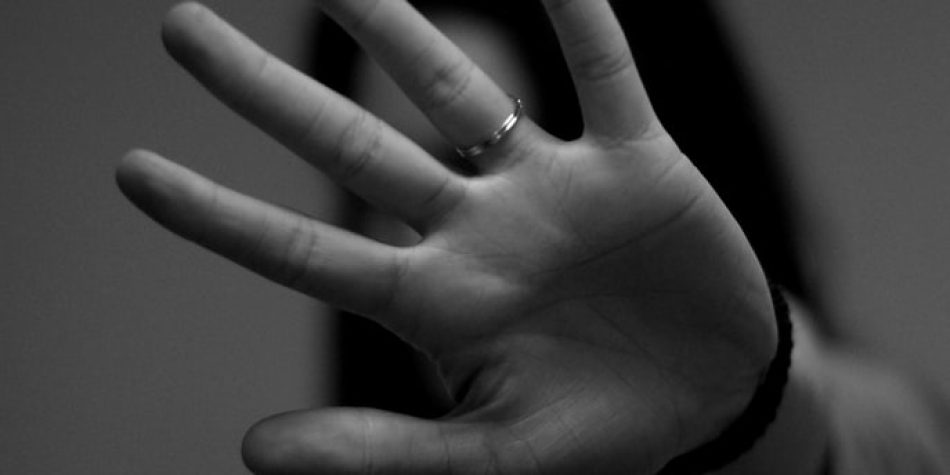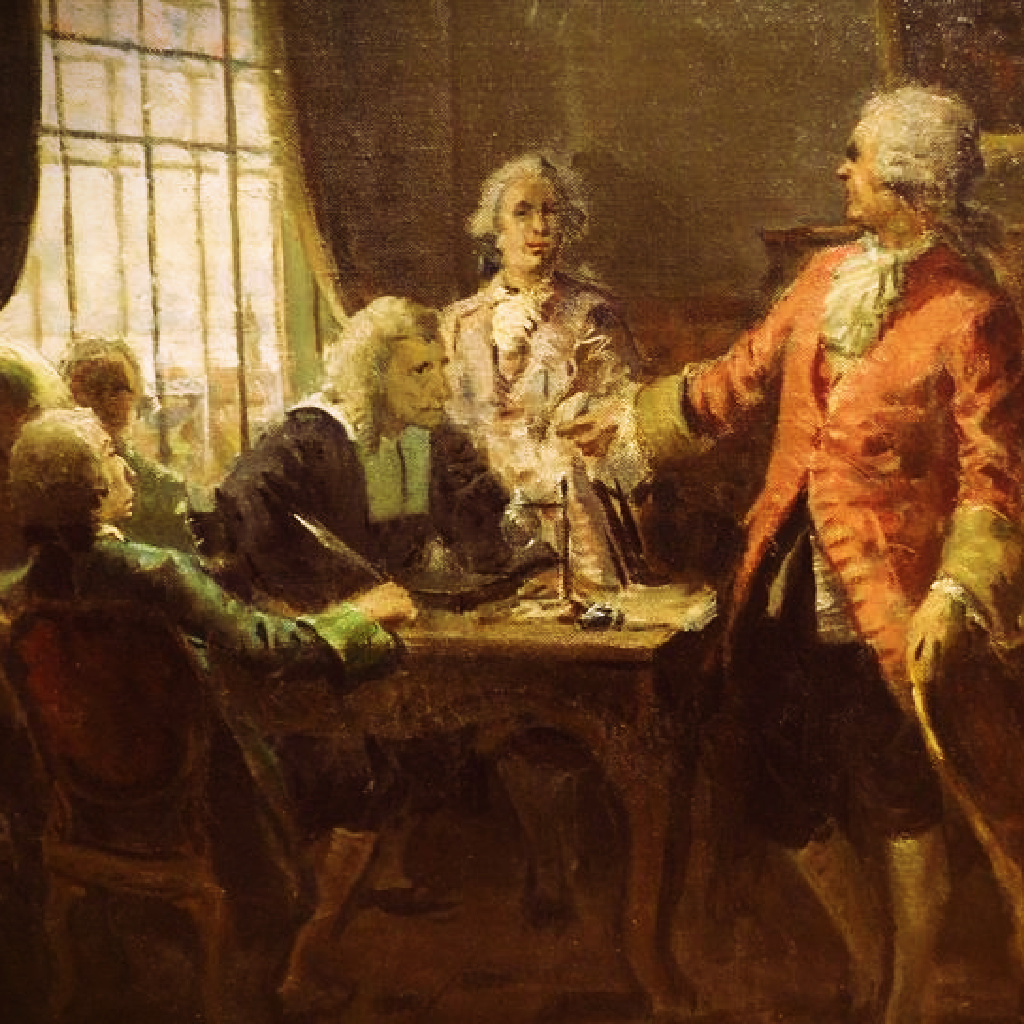Is racism a problem in society today? Absolutely.
Do Black lives matter? Infinitely so.
Do those who agree on both of these points also agree on how to demonstrate and live them out in society today?
Not at all.
It’s the third point that many people are overlooking—or missing entirely. Recently, I raised a question about the Black Lives Matter movement in correspondence with a friend—prompting a quick response, “So, what are you saying—that black lives don’t matter?”
Do we really believe there is a single perspective out there on how best to support the African-American community?
Last week, I similarly heard from a friend of mine who had shared her own concerns with some aspects of the agenda outlined on the original Black Lives Matter website— prompting the same reaction from the person listening, “So, do you believe black lives matter?”
By now, many have had experiences like this where genuine questions or concerns about the BLM movement are met with reactions that presume only one reason people might feel such resistance or opposition to the movement.
To that, many of us want to ask in reverse: Do we really believe there is a single perspective out there on how best to support the African-American community—or are there multiple, valid points of view?
Since the answer to that question is, once again, no longer obvious to many in this country, any curiosity or question can swiftly be experienced as overt hostility to black people.
But why? Should it really be so surprising that, along with many other important aspirations, we might hold unique views about reaching the goal? And if so, shouldn’t we expect similarly robust conversations about how to pursue this one?
One man standing.
Just a year ago, it was still a unique anomaly for any professional athlete to be kneeling or sitting out the national anthem. Those who did so received major public attention, along with frequent institutional pressure to conform with the standard of standing for the anthem.
The tables have now turned, with anyone choosing to remain standing now the outlier sticking out. As the NBA’s season started recently, with each passing game every player chose to kneel during the national anthem.
Until Jonathan Isaacs. Not only did he choose not to kneel, but Isaacs also opted out of wearing a BLM T-shirt now ubiquitous in NBA warm-ups.
But, again, why and how would a black man choose to not publicly support Black Lives Matter?
His decision naturally invoked a great deal of shock, curiosity, and confusion. And yet the first question asked of this man by a reporter in the press conference shouldn’t have been surprising:
“Do you believe that Black lives matter?”
“Absolutely,” Isaac said.
Underscoring the strangeness of the line of questioning put to him, Isaacs later reminded reporters that he “grew up black” and had “a black little brother.” Even so, this newly ordained minister admitted, “a lot went into my decision” but “I don’t think that kneeling or putting on a T-shirt for me, personally, is the answer.”
Why not?
“For me,” he continued, “my life is supported through the gospel of Jesus Christ . . . I feel like, for me, Black lives are supported through the Gospel. All lives are supported through the Gospel.”
Say what? One mystified reporter asked him the question Americans now ask many people of faith when it comes to many issues: what does “religion have to do” with any of what’s actually going on (police brutality, racial injustice, etc.)?
The answer that Isaac went on to provide in this short press conference was nothing short of remarkable, and I would argue provides a poignant illustration of how the core problem definition implicit in Christian faith and scripture differs so markedly from so much of the rhetoric we’re hearing all around us.
Especially in two main ways.
The underlying problem behind the civil unrest.
Americans have been hearing more and more that where you were born and the color of your skin leads to a radically different set of experiences, possibilities, pains, and hopes—differences that are fundamental, intrinsic, and gaping. From this vantage point, as Jonathan Chait summarized in New York Magazine, “the individual is subsumed completely into racial identity.”
Isaac started with a different focus entirely—emphasizing a profound, underlying commonality in human beings, without denying meaningful differences in experience: “Everyone is made in the image of God and we all share in His glory.”
Then this man emphasized another experience he suggested as common to all of our experience: “Each and every one of us, each and every day, do things we shouldn’t. We say things we shouldn’t say. We hate and dislike people we shouldn’t hate and dislike.”
In other words, we all make mistakes. We all sin. When one journalist probed why he wasn’t featuring a social justice message on his jersey, Isaac acknowledged that, yes, “Obviously there are things in our country that aren’t right, people that aren’t right”— but then, again, returned attention to the personal level: “And that goes for every single one of us, every single last one of us fall short of God’s glory.”
I personally found this as contrasting sharply with rhetoric on both sides of the political spectrum that highlights the distinctive, glaring mistakes of Those People—“the police” or “the protesters” depending on which side you are on (or “the liberals” or “the conservatives,” etc.). Pointing towards this rhetoric, Isaac then said, “Sometimes we get to the point where we point fingers about whose evil is worse, and sometimes it comes down to simply whose evil is most visible.” Yet directing attention back to the scriptural message of the universality of human betrayal of what is good, he repeated again, “We all, like I said, have things that we do wrong. The Bible tells us that we all fall short of God’s glory.”
It’s not just race where we’re falling short.
According to Isaac (and the scripture he references), it’s not only the police who fall short of God’s glory, or the protesters. It’s also journalists, politicians, and the millions of American onlookers at home.
Furthermore, it’s not just race where we’re falling short. As Isaac points out, “When you look around, racism isn’t the only thing that plagues our society, that plagues our nation and plagues our world.” That’s why, he explained, he felt strongly about “coming together on that message that we want to get past not only racism but everything that plagues our society.”
Everything that plagues our society? However difficult it seems to eradicate just racism, you’re suggesting we take on every betrayal of goodness in the world, Isaac?
Pretty bold. So, how exactly is that grand vision ever to come to pass?
The ultimate solution to societal unrest we’re facing.
Jonathan Isaac then said the following: “I feel like the answer to that is gospel . . . the end of the day, whoever will humble themselves and seek God and repent of their sins, then we could see it in a different light—see our mistakes and people’s mistakes in a different light, see people’s evil in a different light.”
Consider how different this proposed solution is from the loud demands being raised right now across our land. Rather than just pointing the finger at Those People (liberal/conservative, black/white, protester/police), the gospel message invites us all to look inside—and in the mirror itself.
But why? To ignore the aching injustice and “real problems around us”? Not at all.
All of that still matters—to God and anyone who seeks to follow His Son. But as scripture underscores, the answers to all the injustice must begin in each of us—in order to be able to do what God wants us to do and change what God wants to see changed.
That’s not something we need to do alone, however. As Isaac elaborated, “So I felt like I wanted to take a stand on [the reality] that we all make mistakes but the Gospel of Jesus Christ says there is Grace for us and Jesus came to die for our sins. If we all come to an understanding of that and God wants to have a relationship with us. . . .”
“And that,” he continued, “would help bring us closer together and get past skin color, get past anything that’s—you know, on the surface that doesn’t really deal with the hearts of men and women.”
Hold up—did he just say “get past skin color”? Yes—and more than once, as he reiterated a goal that “we can get past skin color and all the things that are messed up and jacked up.”
“We’re protesting and doing things to get something done” he added—in an acknowledgment of the many seeking change. Then he said, “And I’m standing to get something done as well—to get out of the realm of skin color and see all the things that we all do each and every day that aren’t right. And come to an understanding that, at the end of the day, the answer to it all—to all of our problems—to everything that goes on in our world, is Jesus.”
Wow. To say that people had a hard time understanding his answer would be an understatement. For the next ten minutes, the mystified reporters peppered him with all sorts of follow-up questions.
And no wonder. What Isaac had just articulated in a few minutes was at odds with the taken for granted assumptions driving not only the entire NBA—but protests in cities across the nation.
Rather than a war between black and white, Isaac testified this was a war requiring all of us to be united against something we all need to confront inside. And in sharp contrast to those who propose skin color as differentiating fundamentally different kinds of human beings, this man again bravely highlighted the fundamental unity among the family of God—a unity that Christ asks His disciples to seek. Finally, in contrast to those who insist the answers lie primarily in dismantling systems, institutions, and practices around us, Jonathan stood firm in emphasizing an answer that begins in only one place.
And one person: Christ.
“I think that I just wanted to take that stance in saying that I believe that Jesus is the answer, so I didn’t think that wearing a message on the back of my jersey was the answer for me.”
No other path, according to Jonathan Isaac, was going to really lift Black lives in a way he would stand for. And so he wasn’t going to kneel for it. Or wear what would have made everyone like him.
Of course, many other Christians see some overlap between Black Lives Matter and the redemptive message of Jesus—denying any legitimate conflict as existing. For instance, Catholic columnist Elizabeth Breunig recently portrayed this as an “imagined conflict between Christianity and today’s anti-racism movement.”
Others have agreed with Isaac—including Andrew Sullivan, a Catholic writer, who argued in July that Black Lives Matter and Christianity are “fundamentally incompatible world views.” Bishop Thomas A. Daly of Spokane, Wash., likewise stated in July: “BLM is in conflict with Church teaching regarding marriage, family and the sanctity of life. Moreover, it is disturbing that BLM has not vocally condemned the recent violence that has torn apart so many cities.”
Which is why individuals like Jonathan Isaac believe that Black Lives Matter (the organization and movement) may not be the right approach for those who believe that Black lives matter.
Even though a national debate on all this is ongoing, the consequences fall much heavier on those dissenting from the popular Black Lives Matter message. And when asked how he arrived at what must have been a difficult decision, Isaac admitted being aware “it was going to be something that people had a lot of questions for me and questioned my heart, questioned my love, questioned my morality for not wearing the T-shirt or taking a knee.”
Yet he had to do what felt right. Along with spiritual mentors, he said, “I leaned on God’s word, and the promises” in making the decision.
He underscored the love he had for his teammates—and emphasized, “For me personally, it’s not coming from a position of wanting to be popular or wanting to be seen or wanting to be anything other than a humble follower of Jesus. That’s where I stake my flag.”
Something more (and less) than a deconstruction of systems may be needed.
Many made it clear how much they disliked the fact that a black man was publicly dissenting, disrupting the optics of all black people supporting this movement, and drawing attention away from its message (towards another message). NBA writer Vincent Goodwill of Yahoo! Sports, for instance, suggested that Isaac took a potentially powerful moment to push for more concrete change and gave fuel to those looking for the OK to push views that undermine necessary social change.
Is there more than one way to support Black lives?
Which brings us back to the question we started with: Is there really only one legitimate perspective on how to support the black community in seeking peace and joy?
The answer is—or should be—clearly no. But that’s not so clear or obvious to anyone anymore.
Which is why raising your voice, like Jonathan Isaac demonstrated, is so important for all Christians.
Testify. And bear witness.
Of another way to think about all this—and another way to respond. Reminding people that something more (and less) than a deconstruction of systems may be needed.
Something that goes far deeper—and far beyond that.
A change of heart that only God can bring to pass.
In all of us.
















